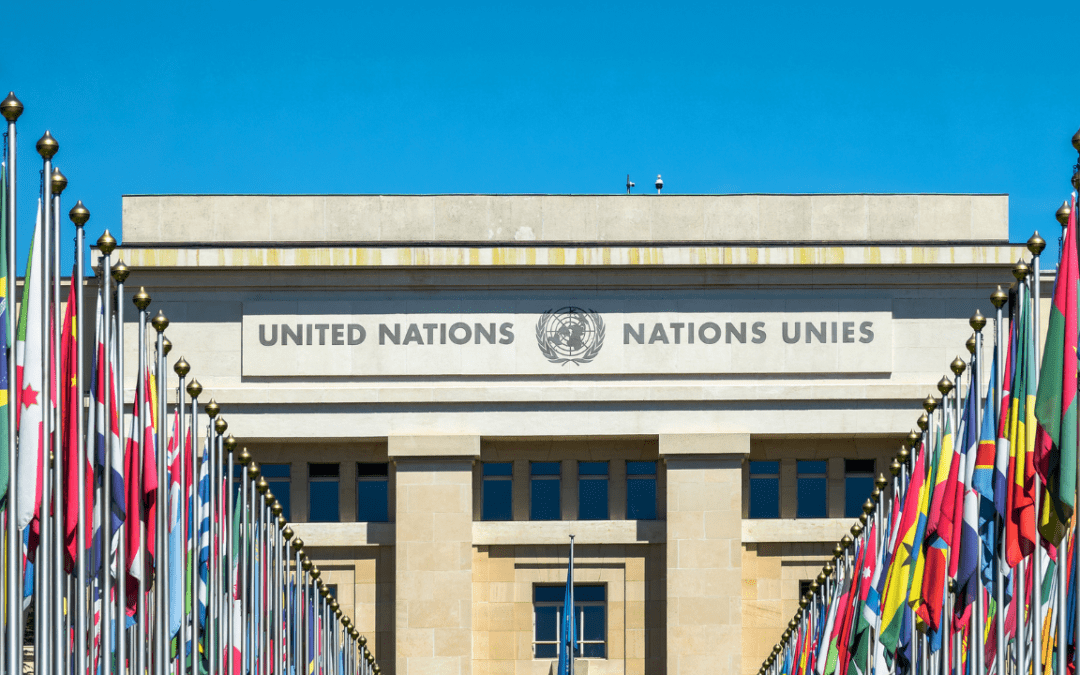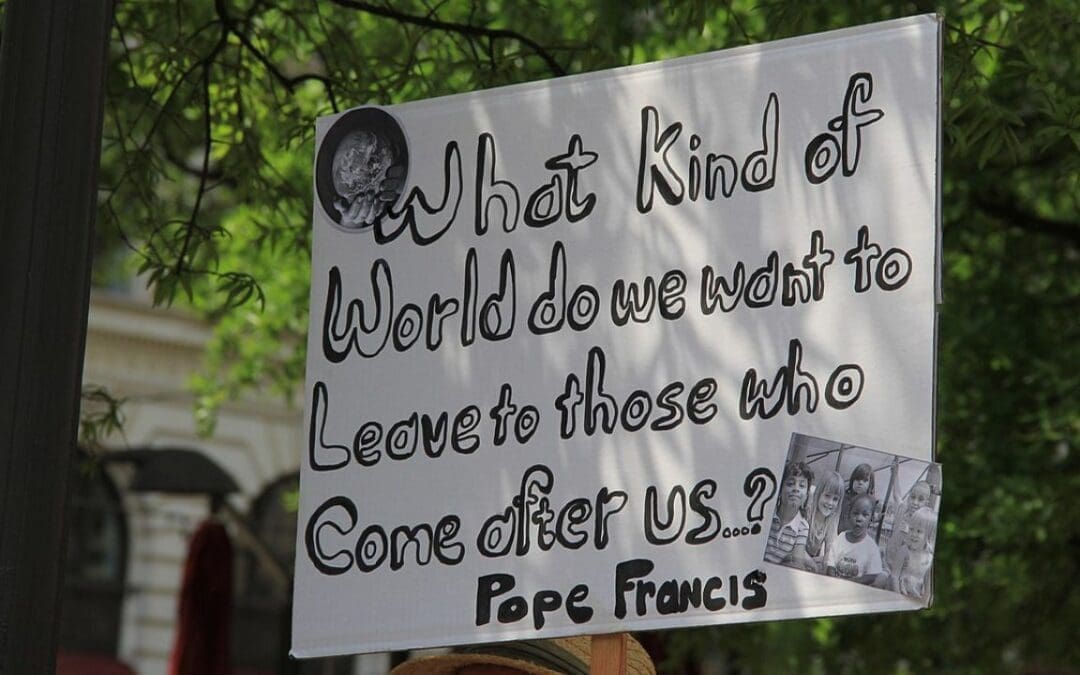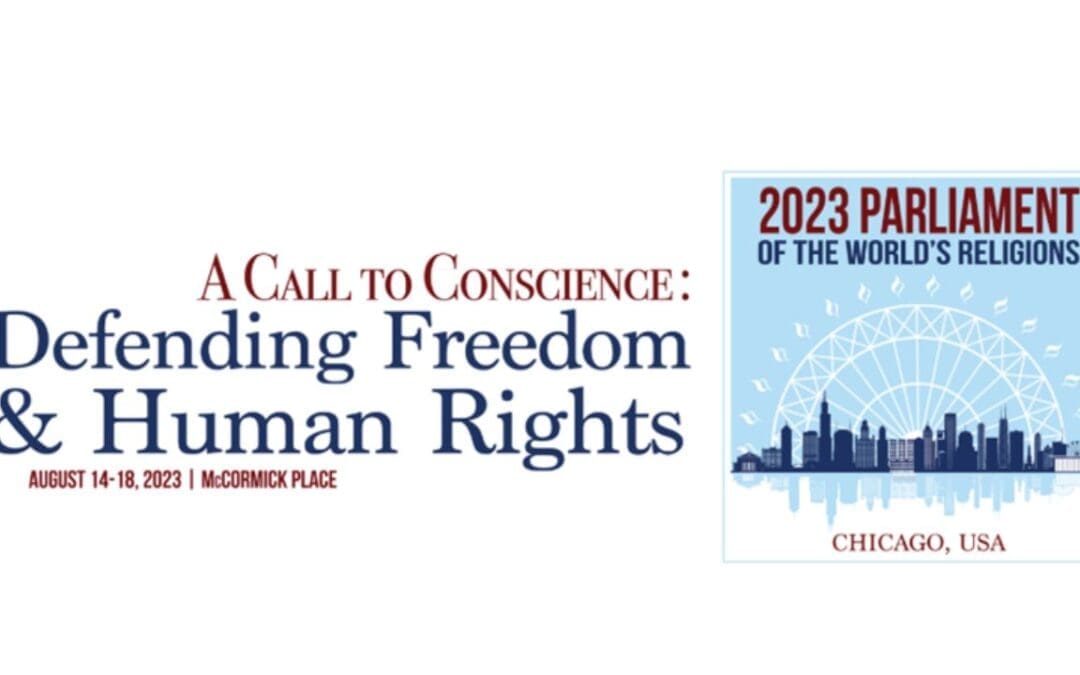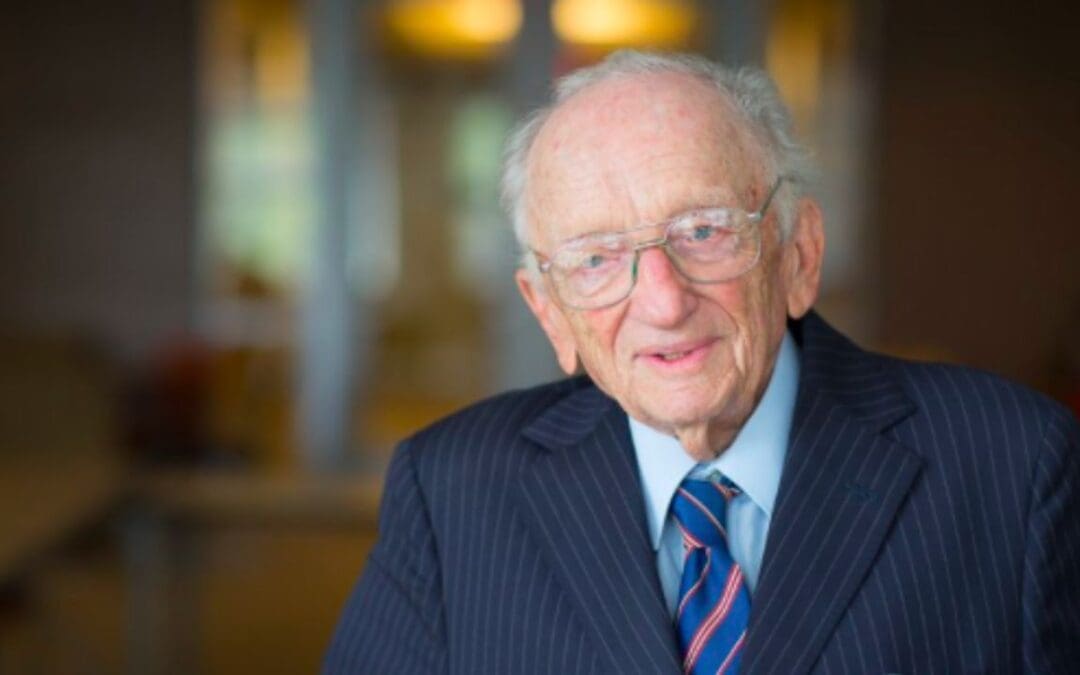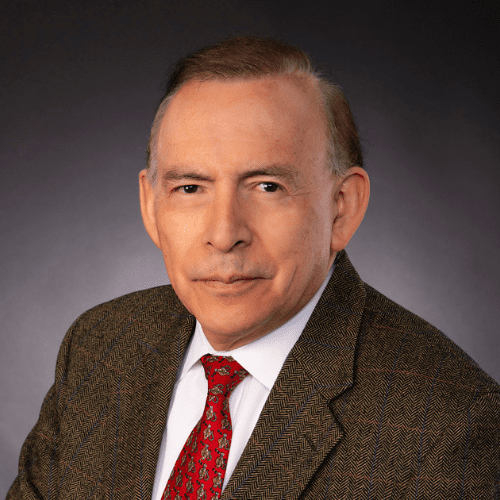
by David Oughton | Feb 20, 2026 | United Nations
Although the United Nations was created in 1945 with the goal of ending war and solving other global problems, in many cases, the international organization has been unable to fulfill its mission. Since that time, wars have been fought, unscrupulous national leaders have done whatever they can get away with, and numerous global problems remain unresolved.
The reason for the spotty record of the world organization is that many organs of the United Nations are weak and, therefore, unable to cope adequately with the enormous job that lies before the international organization and the world. The solution is to transform these UN organs by drawing upon Article 109 of the UN Charter, which lays out the method for making changes in the UN system.
Here are some of the major structural problems of key UN organs that could be solved if enough people and countries were committed to making the United Nations strong and effective.
Currently, the UN General Assembly (UNGA) can only pass nonbinding resolutions addressing how national governments should behave. Even if a nation votes for a resolution, it is not required to follow it. The UNGA is not democratic because each of the current 193 countries has the same one vote, regardless of the size of its population. A few countries have over a billion people, while some have only a few thousand. It is thus possible for a resolution in the UNGA to pass by a two-thirds majority that represents only 8 percent of the world’s population. The 65 least populous countries with a combined population below one percent of the world’s population can block the passage of a substantive resolution in the UNGA. The solution is to use a system of weighted votes based on population and other factors so that the General Assembly can pass laws regarding violations of human rights, relations among nations, and other global problems.
The UN Security Council has often been ineffective because any one of the five permanent members (the United States, Russia, China, the United Kingdom, and France) usually vetoes any resolution when it or one of its allies is involved in a dispute. Any permanent member can kill a peace resolution even if all of the other fourteen members on the Security Council vote for it. The solution is to have regional memberships on the Security Council using weighted voting so that no one nation can veto a resolution.
The UN International Court of Justice (ICJ) can only issue non-enforceable decisions. National leaders suffer no consequences for violating or for withdrawing from international treaties. Even though most nations abide by most of their treaties most of the time, national governments can violate or withdraw from treaties when they feel it is in their national interest without any concern for the common good. The solution is to give the ICJ the authority to require binding arbitration for disputes between nations or groups.
The International Criminal Court (ICC) is based on a treaty that so far has been joined by only two-thirds of the world’s governments. One-third of the countries that have not joined the ICC treaty include Russia, China, the United States, and Israel. The jurisdiction of the ICC should become universal so that, in accordance with its charter, those individuals involved in genocide, war crimes, crimes against humanity, and aggression are prosecuted when national courts are unwilling or unable to do so.
The UN system must rely on dues from national governments, which are not always paid. The U.S. government, for example, owes billions of dollars in back dues to the world organization. Furthermore, the UN system, including its many specialized agencies, must do its important work on an extremely small budget. Almost every state in the United States has a larger annual budget than the UN system. One way to provide adequate funding for the UN system would be to charge a user tax on nations, corporations, and individuals for international travel and for exploring and using the resources of the common areas of our planet that are not part of any national territory.
These proposals will only be implemented when enough people from many countries vote for leaders who support strengthening the United Nations. Until then, wars, hunger, and disease will continue to plague our planet.

by David Oughton | Oct 28, 2023 | Climate Justice
Pope Francis released this apostolic exhortation “to all people of good will on the climate crisis” on October 4, the feast day of St. Francis of Assisi. Its Latin title refers to the message of St. Francis to “praise God for all of God’s creatures.” (#1) This letter to the world is an addendum to his 2015 encyclical “Laudato Si” (“Praise Be,” the beginning words of a canticle by St. Francis). That encyclical is known as “On Care for Our Common Home.”
Pope Francis decided to write Laudate Deum because “climate change is one of the principal challenges facing society and the global community” (#3) but he is gravely disappointed that “our responses have not been adequate.” (#2) The acceleration of global warming is evident now. “Despite all attempts to deny, conceal, gloss over or relativize the issue, the signs of climate change are here and increasingly evident.” (#5)
According to Pope Francis, “it is no longer possible to doubt the human–‘anthropic’–origin of climate change.” (#11) He says that it is a fact that the average global temperature has risen dramatically with the increase use of fossil fuels. The consequence is the melting of glaciers and the polar regions, the acidification of the oceans, and the rising of sea level. He concludes that “the change in average surface temperatures cannot be explained except as the result of the increase of greenhouse gases.” (#14) He believes that some effects of the climate crisis are already irreversible.
What has gotten us to this point? Pope Francis argues that a growing technocratic paradigm that exploits nature because of unbridled power and economic ambition is the underlying issue. Humans have forgotten that we are part of nature and that how we interact with the rest of nature affects our future. Therefore, “we need to rethink among other things the question of human power, its meaning and its limits.” (#28) We need to reassess an economic mentality about maximum gain at minimal cost because such an attitude has serious consequences about care of our common home and care for the poor and needy.
The 2015 Paris Agreement has ambitious goals that are not currently being met. Pope Francis hopes that the next climate conference will lead to the “necessary transition towards clean energy sources such as wind and solar energy, and the abandonment of fossil fuels.” (#55)
Pope Francis also addresses the weakness of international politics. Individual nations acting alone cannot solve the climate crisis or any of our other global problems. He says that we need multilateral agreements based on the principle of subsidiarity. Solving global problems requires “establishing global and effective rules” (#42) and “increased ‘democratization’ in the global context.” (#43)
The reason why humanity has been unable to solve major global problems is because of our current international system of sovereign nation-states. International law is a system of non-binding treaties. No nation is required to become a party to any international treaty. National governments that enter into treaties can withdraw from them or ignore them based on their perceived national interest.
In Laudato Si, Pope Francis agreed with several previous popes that “there is urgent need of a true world political authority.” (#175) Many Catholic leaders have been arguing that outlawing war and genocide as well as solving global problems such as climate change will require a truly effective democratic world public authority that can create and enforce world laws and prosecute individuals who violate them. Until such a system is created, Pope Francis says that it is imperative that national governments become parties to effective environmental treaties and that they keep their treaty obligations.
With this letter to the global community, Pope Francis continues his warning about the existential crisis caused by climate change. He emphasizes the physical and spiritual dimensions of this crisis. This letter needs to be studied by members of the world community because it concerns the future of our common home.
Image credit: Dcpeopleandeventsof2017, CC BY-SA 4.0, via Wikimedia Commons

by David Oughton | Sep 5, 2023 | Human Rights
The first time that many religious representatives met with each other was at the World Parliament of Religions in Chicago in 1893. Three of the goals of this gathering were to show “what and how many important truths the various Religions hold and teach in common;” to discover “what light Religion has to throw on the great problems of the present age;” and “to bring the nations of the earth into a more friendly fellowship, in the hope of securing permanent international peace.” The president of this Parliament proclaimed, “Henceforth the religions of the world will make war, not on each other, but on the giant evils that afflict humanity.” But after two world wars, the Holocaust and other genocides, the Cold War with massive nuclear proliferation, and over eighty wars since the end of the Second World War, many people representing many different religions realized the need for modern Parliaments in order to address our current global problems.
So in 1993 many religious leaders in Chicago organized the first modern Parliament. The other modern Parliaments were then held in Cape Town, South Africa in 1999, in Barcelona, Spain in 2004, in Melbourne, Australia in 2009, in Salt Lake City, Utah in 2015, in Toronto, Canada in 2018, virtually in 2021, and most recently back in Chicago this year from August 14 to 18. I have been fortunate to participate in all of these modern Parliaments.
The modern Parliaments are religious conventions that are open to anyone who is committed to learning about other religions and dialoging with people from other religions. Each day of the Parliament involves meetings, presentations, and panels about the beliefs and practices of different religions or about humanity’s most pressing problems: violence, human rights atrocities, poverty, racism, gender inequality, war and genocide, nuclear weapons, and environment degradation due to global warming. Leaders of various groups within Judaism, Christianity, Islam, the Baha’i Faith, Zoroastrianism, Hinduism, Buddhism, Sikhism, Jainism, Confucianism, Taoism, and other religious groups gave speeches in the plenary sessions about how they think these global problems can be solved.
The theme of the 2023 Parliament in Chicago was “A Call to Conscience: Defending Freedom and Human Rights.” There were over 7,000 attendees at this Parliament in Chicago, representing about 100 countries and over 200 different religious groups. There were over 100 sessions or presentations during each day of the Parliament. There were many opportunities to attend different religious services at the Parliament. Many dances and songs performed by various religious groups were also part of this global experience. Every day a large group of Sikhs offered a free meal of traditional Indian food to large groups of participants. Everyone who attended these langars was asked to follow the Sikh custom of removing one’s shoes and covering one’s head with a turban or a cloth.
There was a major emphasis at this latest Parliament on the Declaration of a Global Ethic. It was written by a group of scholars from different religions for the 1993 Parliament. The Global Ethic emphasizes a commitment to a culture of non-violence and respect for life, solidarity and a just economic order, tolerance and a life of truthfulness, equal rights and partnership between men and women, and sustainability and care for the Earth. These principles reflect the ancient commandments taught in some way by all of the major religions: ‘you shall not murder/kill, steal, lie, or commit adultery.’ According to the Global Ethic, people from every religion or no religion can agree on universal ethical values such as non-violent conflict resolution, honesty, human rights, labor rights, working against corruption in government and economics, working for justice, and protecting the environment.
Another document that was emphasized at recent Parliaments is the Charter for Compassion. This Charter is based on the Golden Rule that has been taught by all of the major religions in various formulations. The Charter calls upon all to restore compassion to the center of morality and religion, to reject any interpretation of scripture that breeds hatred or violence, to teach accurate and respectful information about other religions, to appreciate cultural and religious diversity, and to cultivate empathy for the sufferings of others, even those regarded as enemies. Because of the modern Parliaments, many cities around the world have declared themselves to be Compassion Cities.
There were several sessions at the 2023 Parliament that emphasized the need for a democratic world federation. One was led by Sovaida Ma’ani Ewing, a representative of the Baha’i Faith. She argued that war, climate change, mismanagement of natural resources, proliferation of nuclear weapons, and financial upheavals can best be solved by establishing collective decision-making institutions that can evolve into a democratic world federation of nation-states. Bruce Knotts, the President of Citizens for Global Solutions and a Trustee of the Parliament, was involved in many sessions in Chicago. Rebecca Shoot, the Executive Director of Citizens for Global Solutions, was a panelist on a session about how to eliminate nuclear weapons.
Many modern philosophers and religious leaders have realized that there will be no peace among the nations without peace among the religions. Furthermore, there will be no peace among the religions without dialogue among the religions. I am convinced that the Parliaments of the World’s Religions are important forums for promoting world citizenship, compassion, and a global ethic for the global community. The world’s religions have a responsibility of building a secure foundation for these values so that a democratic system of enforceable world laws can outlaw war and solve our global problems

by David Oughton | Apr 12, 2023 | Global Justice
Benjamin Ferencz died on April 7, 2023 at the age of 103. He lived a very rewarding and meaningful life. I had the privilege of meeting him several times, most recently when he received a lifetime achievement award from the Law School at Washington University in St. Louis. He also received a lifetime achievement award from Citizens for Global Solutions. He had served as a member of its National Advisory Board. For many years at their events, the St. Louis chapter of CGS handed out many free copies of Ben’s popular book Planethood. This primer for how to outlaw war outlines eight steps for lasting peace and prosperity.
I had the privilege of introducing the documentary film “Prosecuting Evil” at a recent Jewish Film Festival in St. Louis. This film begins with a quote from Aristotle: “At his best, man is the noblest of all animals; separated from law and justice he is the worst.” During his long life, Ben Ferencz saw the best and the worst of humanity. Because of his experiences in the Second World War, Ben explained how “war can make murderers out of otherwise decent people.” His lifelong passion was to free the world of the war system through legal systems. Ben’s mantra was “Law, not war.”
Ben was born in Eastern Europe of Jewish parents. When he was a baby, his family came to the United States and lived in New York City. After learning English as a replacement of his native Yiddish, Ben eventually graduated from City College and then went to Harvard Law School where he studied war crimes. He then joined the U.S. Army during the Second World War. As a war crimes investigator, he visited many concentration camps after they were liberated by the Allies.
At age 27, Ben became the chief prosecutor of one of the subsequent trials at Nuremberg. He prosecuted Nazi leaders like Otto Ohlendorf who were involved in the Einsatzgruppen, the mobile killing squads who rounded up about one million Jews and shot them. The Nazis then sought a cheaper and quicker way to murder millions of innocent people. They created death camps where many Jews were asphyxiated by poison gas. Ben referred to the Nuremberg Trials as the “biggest murder trial in history.”
After prosecuting Nazi leaders, Ben was able to force the German government to take care of Jewish cemeteries in perpetuity. He then came back to the United States and worked as a human rights lawyer. As a professor of international law at Pace University, Ben wrote many books and articles on international criminal law.
Because of his experience as a prosecutor at Nuremberg, Ben was convinced that the world needed a permanent International Criminal Court. He was a champion for the creation of the ICC which came into existence with the Treaty of Rome in 1998 and the ratification by enough national governments in 2002. The ICC can prosecute individuals involved in war crimes, crimes against humanity, genocide, and aggression when national courts are unable or unwilling to prosecute them. Ben saw this as an important deterrent; it sends the message that people, especially national leaders, cannot get away with mass murder. The problem is that only about two-thirds of the national governments are parties to the workings of the ICC. The United States, Russia, and China are not parties because their vetoes in the UN Security Council do not apply in the ICC. It was an op-ed in the New York Times which Ben wrote with Robert McNamara that convinced President Clinton to sign the Treaty of Rome in 2000. But President George W. Bush notified the United Nations in 2002 that the United States would not pursue ratification of this treaty.
Ben believed that universal support for the ICC would be an important step in creating “a more humane and peaceful world order.” For this man who prosecuted Nazi leaders and became one of the world’s foremost experts in international criminal law, law is better than war.
